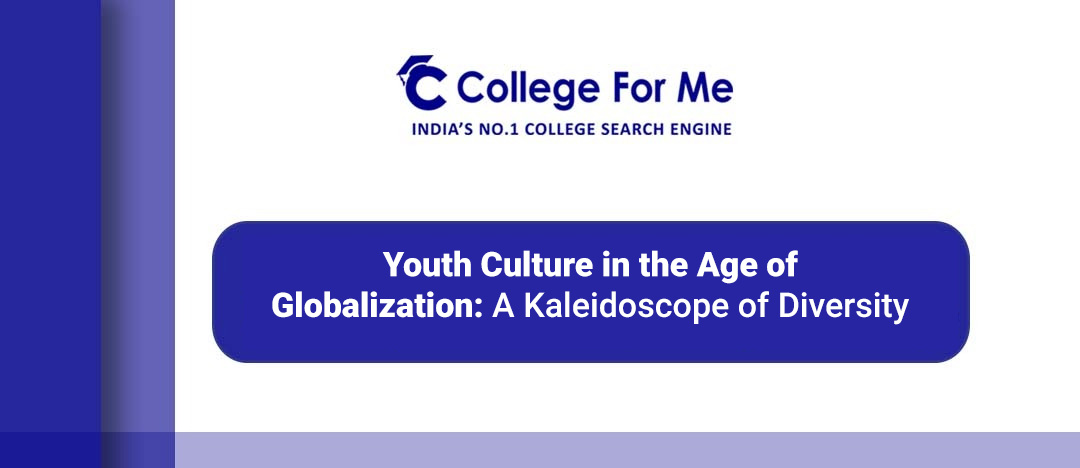Career Scopes Of A B.Tech. Student
There is a high demand for B.Tech. degree holders in the private sector, yet, there is also the opti...

Exploring the Impact of Globalization on the Identities of Young Generations
In an era characterized by unprecedented connectivity and interdependence, the concept of youth culture has evolved dramatically under the influence of globalization. As the boundaries between nations become increasingly porous and cultural exchange becomes the norm, young people around the world are navigating a dynamic landscape that both celebrates diversity and challenges traditional notions of identity.
This article delves into the multifaceted realm of youth culture in the age of globalization, exploring its impact, expressions, and the opportunities it presents.
The Globalization Paradigm
Globalization, with its rapid advancements in communication, transportation, and technology, has revolutionized the way societies interact. The exchange of ideas, values, and cultural expressions transcends geographical borders, leading to a fusion of various cultural elements. In this context, youth culture—often characterized by its dynamic and adaptable nature—has emerged as a prime example of how globalization shapes identities and behaviors.
Cultural Hybridity and Diversity
One of the most notable effects of globalization on youth culture is the phenomenon of cultural hybridity. As young people engage with a myriad of cultural influences from around the world, they develop unique identities that draw from both local traditions and global trends. This blending of cultural elements results in a rich tapestry of expressions, from fashion and music to language and art. The embrace of diverse influences nurtures an open-mindedness and acceptance that are characteristic of many modern youth cultures.
Digital Connectivity and Expression
The digital age has ushered in new avenues for youth culture to flourish. Social media platforms, streaming services, and online communities provide young individuals with spaces to share their creativity and connect with peers globally. This digital landscape enables the rapid dissemination of trends and ideas, contributing to the homogenization of certain aspects of youth culture while also allowing for the amplification of marginalized voices.
Challenges and Homogenization
While globalization has enriched youth culture through cultural exchange, it has also posed challenges. The increased exposure to global media can lead to the homogenization of certain aspects of youth culture, as standardized ideals and trends become more widespread. This can sometimes erode the unique cultural expressions that have historically defined communities. Moreover, the pressure to conform to global standards can lead to cultural appropriation or the loss of cultural authenticity.
Activism and Global Solidarity
Globalization has also galvanized young people to take part in global issues and advocate for change. Youth-led movements, such as climate activism and social justice campaigns, transcend national boundaries and emphasize the interconnectedness of global challenges. Through digital platforms, young activists can mobilize support and raise awareness on a global scale, showcasing the potential of youth culture as a catalyst for positive change.
Preserving Cultural Roots
Amid the whirlwind of global influences, many young people are making conscious efforts to preserve their cultural roots. Whether through traditional clothing, language revitalization, or cultural education, youth are finding ways to honor their heritage while embracing the opportunities presented by globalization. This fusion of the old and the new contributes to the richness of contemporary youth culture.
Youth culture in the age of globalization embodies the paradox of a world becoming simultaneously more interconnected and more diverse. The blending of cultural influences, facilitated by digital connectivity and transcultural exchanges, has led to the emergence of vibrant and multifaceted identities among young people. While challenges of homogenization persist, the ability of youth culture to foster global solidarity and advocate for change is undeniable. As globalization continues to shape the world, the expressions and aspirations of youth culture stand as a testament to the power of diversity, creativity, and resilience in an increasingly interconnected world.

There is a high demand for B.Tech. degree holders in the private sector, yet, there is also the opti...

If you are looking for a bright and prospective career, then getting a B.Tech. in CSE must be under ...
Comments (0)